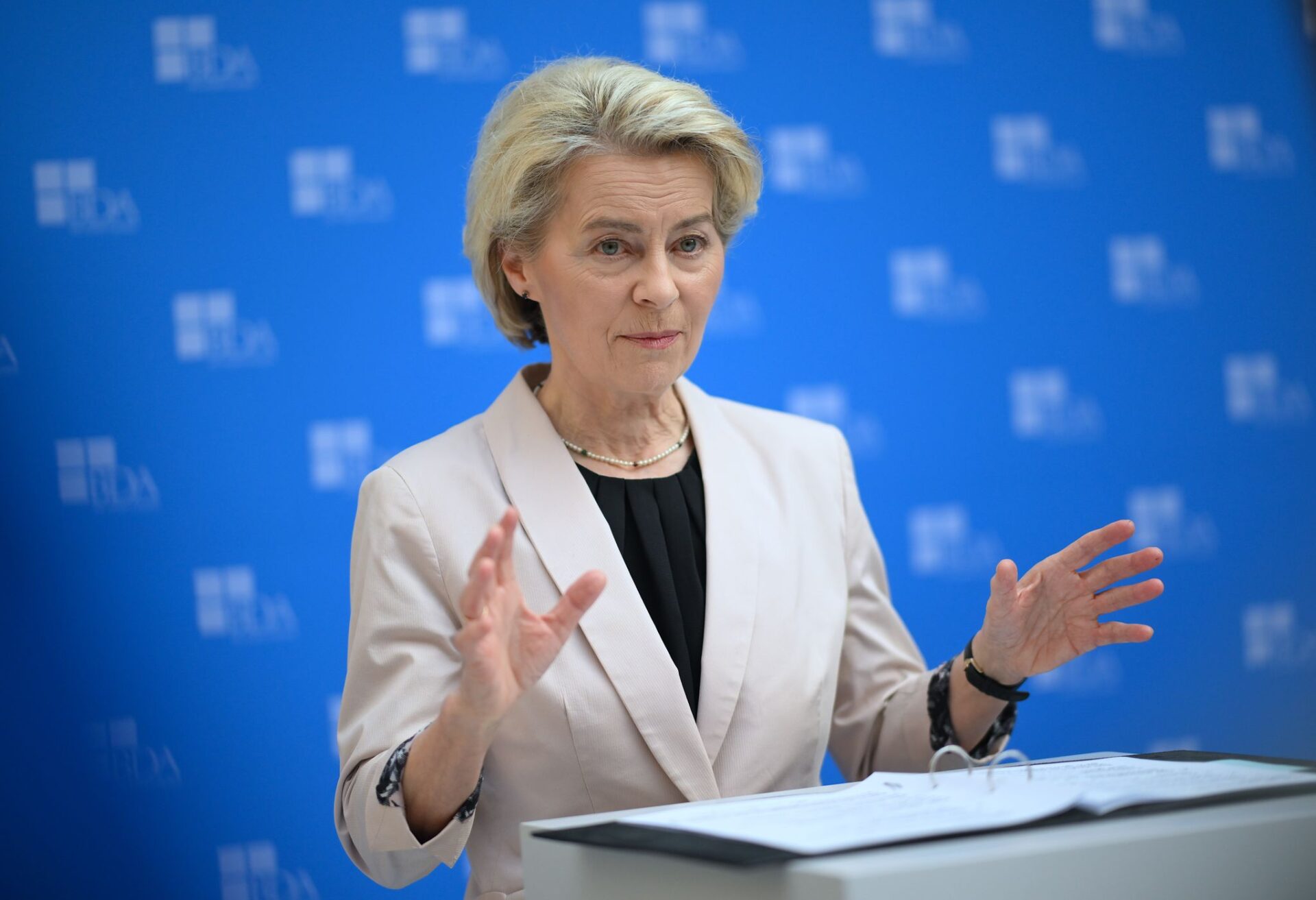 Have the article read by OpenAI (Beta). Please note that AI translations may take some time to process.
Have the article read by OpenAI (Beta). Please note that AI translations may take some time to process.Brussels/Berlin (dpa) – European Commission President Ursula von der Leyen said on Monday the initial results of the European Parliament elections show it is possible to “withstand the pressure from the extremes.”
Von der Leyen said delivering for the public and managing crises gave her centre-right European People’s Party (EPP) group “the strength to have this good result.”
The current President of the European Commission, aiming for a second term on the back of the EPP’s electoral win, was speaking in Berlin as senior party political officials from the EU legislature digested the preliminary election results and set up possible parliamentary groupings.
The first sitting of the new EU legislature is pencilled in for July 16. Overall, the vote saw the EPP come first but also saw gains by far-right parties.
Final results in France and Germany saw the far right make major gains while preliminary results in Italy also reported an increase in support, according to data from the European Parliament.
Von der Leyen repeated her intention to seek support from the liberals and centre-left parties in the EU legislature to form a majority to approve her reappointment. She notably did not seek support from more extreme right wing parties.
On the campaign trail, the commission president drew criticism for not ruling out cooperation with them, in particular with Italian Prime Minister Giorgia Meloni‘s nationalist Brothers of Italy (FdI) party, which came out on top in the EU-wide vote at home.
As the new parliament takes shape, EU leaders are set for a summit next Monday to weigh up the results and decide whether to reappoint von der Leyen for a second term. This is the vital first step that requires a qualified majority.
Only three large EU member states need to vote in favour of von der Leyen for her to to achieve the necessary support, for example, German Chancellor Olaf Scholz, Spanish Prime Minister Pedro Sánchez and France’s Emmanuel Macron.
The EPP won 186 seats in the European Parliament, according to the latest provisional results from the EU legislature, making it the largest group by a comfortable margin, followed by the centre-left Socialists and Democrats (S&D) on 135.
Liberal parties however fell from 102 seats to 79 seats while Green parties are also projected to lose a large number of European Parliament seats, down from 71 to 53. (10 June)
The editorial responsibility for the publication lies with dpa.
